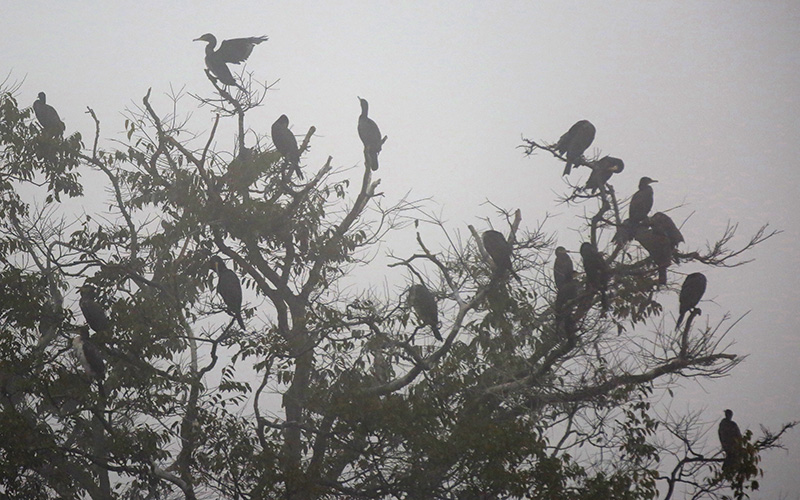Fewer migratory birds in Koshi Tappu this winter
ITAHARI: The number of migratory birds flocking to the Koshi Tappu Wildlife Reserve (KTWR) and its surrounding wetlands is decreasing for some years owing to various factors.
Migratory birds from Siberia, Pakistan, Sri Lanka as well as some South East Asian countries come to the Reserve during the winter.
Kurban Mansoori of Sunsari-based Eco-tourism Conservation Committee shares that the wetlands here are drying up lately and the many areas of land in the Reserve are also being washed away by the Saptakoshi River, causing lack of suitable habitats for the migratory species in the bird sanctuary stretched across 175 square kilometres.
"As a result, the 55 to 100 spices of migratory birds recorded to have arrived in an astonishing number in the Reserve with the onset of winter in the past lately are not seen visiting the place in the similar number lately," says Mansoori.
He further informs that the Reserve has been failing to lure the winter guests since the damages incurred to the eight-metre high embankment of the Koshi Barrage, which has been enclosing the Reserve following the massive flood in Saptakoshi River seven years ago.
"The floods had destroyed many wetlands surrounding the Reserve."
Furthermore, he says the birds' population was affected by the growing haphazard use of the pesticides in the farmland surrounding the Reserve.
The KTWR Conservation Officer Shyam Kumar Shah adds that the migratory birds including a wide variety of pintail, ducks, bar-headed geese, mallards, egrets, herons, ibis and endangered swamp partridges and Bengal floricans and the like used to fly in droves to the Reserve and inhabit for around six months before flying back to their respective original habitats along with their babies begotten during their time in Nepal.
At barely 90 metres above the sea level, the Reserve and the adjacent wetlands are home to more than 500 species of birds, informs Conservation Officer Shah.
According to him, the decreasing number of such winter visitors has also adversely affected the number of bird watchers, ornithologists, avian visitors and researchers coming to the Reserve.
A team of ornithologists led by Badri Chaudhary is currently conducting a birds' census in the Reserve as well as other wetlands in the eastern region.






